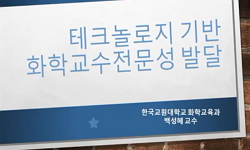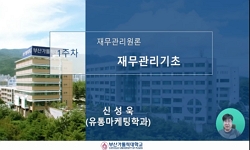The sunk cost effect is defined as the tendency in which investors continue to try their time, money and efforts that were invested in the past. According to existing studies, sunk costs, still in many cases, appear to have a strong influence on futur...
http://chineseinput.net/에서 pinyin(병음)방식으로 중국어를 변환할 수 있습니다.
변환된 중국어를 복사하여 사용하시면 됩니다.
- 中文 을 입력하시려면 zhongwen을 입력하시고 space를누르시면됩니다.
- 北京 을 입력하시려면 beijing을 입력하시고 space를 누르시면 됩니다.

A Study on the Difference between Investment Decisions by Experienced Investors and Inexperienced Investors: A Focus on the Sunk Cost Effect
한글로보기https://www.riss.kr/link?id=A104833437
- 저자
- 발행기관
- 학술지명
- 권호사항
-
발행연도
2010
-
작성언어
English
- 주제어
-
등재정보
KCI등재후보
-
자료형태
학술저널
-
수록면
99-112(14쪽)
-
KCI 피인용횟수
1
- DOI식별코드
- 제공처
-
0
상세조회 -
0
다운로드
부가정보
다국어 초록 (Multilingual Abstract)
On the other hand, internal information accumulated in the market such as “the amount of personal experience and information about a certain product or service" is called consumer knowledge. There have been many studies that show that consumer knowledge influences the way consumers process their information. It appears to be not only an information search for product evaluation, but also the attitude-behavior relationship that is under the influence of consumer knowledge. That is, experts who have a lot of experience buying and using the products and are skillful at dealing with them appear to have a lot of objective knowledge about the attributes and the brands of the products, constituting a high level of prototypes of the products. Experts, therefore, ignore information that they don’t want or is unnecessary for them and make a selective search for information that is related to them, using information that they know about the products first, when they process their product information. In addition, they are able to make a spontaneous evaluation of the products, making use of information they have already, and can make a much faster decision on the evaluation of information than novices. As a result, experts use comparatively less cognitive resources than novices when they evaluate product information.
According to existing studies, the more the investment repeats, the bigger the tendency to avoid a failed investment becomes, so that it can be said that the more investment experience they have, the less their sunk cost becomes. This study, therefore, investigates what influence sunk costs can have on the decision making between experienced investors and inexperienced investors, an extension of the results of existing studies. To this end, face-to-face questionnaire interviews were conducted. Interviewees who were VIP customers of financial institutions were regarded as experienced investors, while interviewees who were university students were regarded as inexperienced investors. The findings are as follows. First, inexperienced investors appeared to take sunk cost into consideration more than experienced investors do when they make investment decisions. But still the rate of those who think it is necessary to take sunk cost into consideration among the experienced investors was as high as 69%, so sunk cost appeared to have a strong influence on their investment decision making. Second, when it comes to actual investment decision making, sunk cost appeared to have more influence on inexperienced investors than on experienced investors. These findings show that experienced investors make comparatively more reasonable investment decisions than inexperienced investors do.
The sunk cost effect is defined as the tendency in which investors continue to try their time, money and efforts that were invested in the past. According to existing studies, sunk costs, still in many cases, appear to have a strong influence on future investment decision making even though they are not to be taken into consideration by reasonable decision makers because they are investment costs of the past that cannot be changed by present or future decision making.
On the other hand, internal information accumulated in the market such as “the amount of personal experience and information about a certain product or service" is called consumer knowledge. There have been many studies that show that consumer knowledge influences the way consumers process their information. It appears to be not only an information search for product evaluation, but also the attitude-behavior relationship that is under the influence of consumer knowledge. That is, experts who have a lot of experience buying and using the products and are skillful at dealing with them appear to have a lot of objective knowledge about the attributes and the brands of the products, constituting a high level of prototypes of the products. Experts, therefore, ignore information that they don’t want or is unnecessary for them and make a selective search for information that is related to them, using information that they know about the products first, when they process their product information. In addition, they are able to make a spontaneous evaluation of the products, making use of information they have already, and can make a much faster decision on the evaluation of information than novices. As a result, experts use comparatively less cognitive resources than novices when they evaluate product information.
According to existing studies, the more the investment repeats, the bigger the tendency to avoid a failed investment becomes, so that it can be said that the more investment experience they have, the less their sunk cost becomes. This study, therefore, investigates what influence sunk costs can have on the decision making between experienced investors and inexperienced investors, an extension of the results of existing studies. To this end, face-to-face questionnaire interviews were conducted. Interviewees who were VIP customers of financial institutions were regarded as experienced investors, while interviewees who were university students were regarded as inexperienced investors. The findings are as follows. First, inexperienced investors appeared to take sunk cost into consideration more than experienced investors do when they make investment decisions. But still the rate of those who think it is necessary to take sunk cost into consideration among the experienced investors was as high as 69%, so sunk cost appeared to have a strong influence on their investment decision making. Second, when it comes to actual investment decision making, sunk cost appeared to have more influence on inexperienced investors than on experienced investors. These findings show that experienced investors make comparatively more reasonable investment decisions than inexperienced investors do.
참고문헌 (Reference)
1 Larrick, R.P., "Who Uses the Cost-Benefit Rules of Choice? Implications for the Normative Status of Microeconomic Theory" 56 (56): 331-347, 1993
2 Thaler, R.H., "Toward a Positive Theory of Consumer Choice" 1 : 39-60, 1980
3 Teger, A.I., "Too Much Invested To Quit: The Psychology of The Escalation of Conflict" Pergamon 1980
4 Garland, H., "Throwing Good Money After Bad: The Effect of Sunk Costs on the Decision to Escalate Commitment to an Ongoing Project" 75 (75): 728-731, 1990
5 Arkes, Hal R., "The Psychology of Sunk Costs" 35 : 124-140, 1985
6 Tversky, A., "The Framing of Decisions and Psychology of Choice" 211 : 453-458, 1981
7 Brucks, M., "The Effects of Product Class Knowledge on Information Search Behavior" 12 : 1-15, 1985
8 McGlothlin, W.H., "Stability of Choices among Uncertain Alternatives" 69 : 604-615, 1956
9 Markus, H., "Self-Schemata and Processing Information About the Self" 35 : 63-78, 1977
10 Rusbult, C.E., "Satisfaction and Commitment in Friendships" 11 (11): 96-105, 1980
1 Larrick, R.P., "Who Uses the Cost-Benefit Rules of Choice? Implications for the Normative Status of Microeconomic Theory" 56 (56): 331-347, 1993
2 Thaler, R.H., "Toward a Positive Theory of Consumer Choice" 1 : 39-60, 1980
3 Teger, A.I., "Too Much Invested To Quit: The Psychology of The Escalation of Conflict" Pergamon 1980
4 Garland, H., "Throwing Good Money After Bad: The Effect of Sunk Costs on the Decision to Escalate Commitment to an Ongoing Project" 75 (75): 728-731, 1990
5 Arkes, Hal R., "The Psychology of Sunk Costs" 35 : 124-140, 1985
6 Tversky, A., "The Framing of Decisions and Psychology of Choice" 211 : 453-458, 1981
7 Brucks, M., "The Effects of Product Class Knowledge on Information Search Behavior" 12 : 1-15, 1985
8 McGlothlin, W.H., "Stability of Choices among Uncertain Alternatives" 69 : 604-615, 1956
9 Markus, H., "Self-Schemata and Processing Information About the Self" 35 : 63-78, 1977
10 Rusbult, C.E., "Satisfaction and Commitment in Friendships" 11 (11): 96-105, 1980
11 Johnson, E.J., "Product Familiarity and Learning New Information" 11 : 542-550, 1984
12 Bazerman, M.H., "Performance Evaluation in a Dynamic Context: A Laboratory Study of the Impact of a Prior Commitment to the Ratee" 67 (67): 873-876, 1982
13 Northcraft, G.B., "Opportunity Costs and The Framing of Resource Allocation Decisions" 37 : 348-356, 1986
14 Webley, P., "Mental Accounting in Childhood" 1997
15 Thaler, R.H., "Mental Accounting Matters" 12 (12): 183-206, 1999
16 Tversky, A., "Judgement under Uncertainty: Heuristics and Biases" 185 : 1124-1130, 1974
17 Zaichkowsky, J.L., "Familiarity: Product Use, Involvement, or Expertise?" 12 : 296-299, 1985
18 Rubin, J.Z., "Factors Affecting Entrapment in Waiting Situations: The Resencrantz and Gulidenstern Effect" 31 : 1054-1063, 1975
19 Anderson, R.D., "Evaluating the Relationships Among Attitude Toward Business, Product Satisfaction, Experience, and Search Effort" 16 : 394-400, 1979
20 Staw B.M., "Escalation-The Determinants of Commitment to a Chosen Course of Action" 30 (30): 431-450, 1977
21 Whyte, G., "Escalating Commitment to a Course of Action: A Reinterpretation" 11 : 311-321, 1986
22 Garland, H., "Effects of absolute and relative sunk costs on the decision to persist with a course of action" 48 : 55-69, 1991
23 Bettman, J.R., "Effects of Prior Knowledge and Experience and Phase of the Choice Process on Consumer Decision Process; A Protocol Analysis" 7 : 234-, 1980
24 Bettman, J.R., "Effects of Framing on Evaluation of Comparable and Noncomparable Alternatives by Expert and Novice Consumers" 14 : 141-154, 1987
25 Beattie, A.E., "Effects Of Product Knowledge on Comparison, Memory, Evaluation, and Choice: A Model of Expertise in Consumer Decision-Making" 9 : 336-341, 1982
26 Alba, J.W., "Dimensions of Consumer Expertise" 13 : 411-454, 1987
27 McCain, B.E., "Continuing Investment Under Conditions of Failure: A Laboratory Study of Limits to Escalation" 71 : 280-284, 1986
28 Yi, Y., "Contextual Priming Effects in Print Advertisements: The Moderating Role of Prior Knowledge" 22 : 1-10, 1993
29 Sujan, M., "Consumer Knowledge: Effects on Evaluation Strategies Mediating Consumer Judgments" 12 : 31-45, 1985
30 Staw B.M., "Commitment to Policy Decisions: A Multi-Theoretical Perspective" 23 (23): 40-64, 1978
31 Staw, B.M., "Behavior in Escalation Situations: Antecedents, Prototypes, and Solution. in: Research in Organizational Behavior" JAI Press 1987
동일학술지(권/호) 다른 논문
-
- 아시아유럽미래학회
- 허경
- 2010
- KCI등재후보
-
- 아시아.유럽미래학회
- 조희원
- 2010
- KCI등재후보
-
한국 대학의 경영학 교육 효율성 제고에 관한 연구: 상황학습이론을 중심으로
- 아시아.유럽미래학회
- 문용호
- 2010
- KCI등재후보
-
미국 금융위기 전후 독일 주식시장과 유로 채권시장에 미친 영향에 관한 실증적 연구
- 아시아.유럽미래학회
- 임병진
- 2010
- KCI등재후보
분석정보
인용정보 인용지수 설명보기
학술지 이력
| 연월일 | 이력구분 | 이력상세 | 등재구분 |
|---|---|---|---|
| 2022 | 평가예정 | 재인증평가 신청대상 (재인증) | |
| 2019-01-01 | 평가 | 등재학술지 유지 (계속평가) |  |
| 2016-01-01 | 평가 | 등재학술지 유지 (계속평가) |  |
| 2012-01-01 | 평가 | 등재학술지 선정 (등재후보2차) |  |
| 2011-01-01 | 평가 | 등재후보 1차 PASS (등재후보1차) |  |
| 2009-01-01 | 평가 | 등재후보학술지 선정 (신규평가) |  |
학술지 인용정보
| 기준연도 | WOS-KCI 통합IF(2년) | KCIF(2년) | KCIF(3년) |
|---|---|---|---|
| 2016 | 0.55 | 0.55 | 0.47 |
| KCIF(4년) | KCIF(5년) | 중심성지수(3년) | 즉시성지수 |
| 0.47 | 0.46 | 0.727 | 0.13 |




 KCI
KCI 스콜라
스콜라






